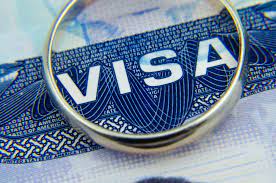The UK fiancé visa allows foreign nationals to join their British partner in the UK with the intention of getting married within six months. While many applications are successful, there are also a significant number of refusals. Understanding the common reasons for these refusals and how to avoid them is essential for anyone hoping to secure a fiancé visa to the UK. This article will provide a comprehensive guide on the most frequent causes of visa rejections and how to navigate the process smoothly.
1. Understanding the UK Fiancé Visa
The fiancé visa is designed for individuals who are engaged to a British citizen or someone with settled status (indefinite leave to remain) in the UK. The visa allows the applicant to enter the UK for six months, during which time they must marry their partner. After the marriage, the applicant can apply for a Partner visa UK.
Although the process may seem straightforward, many applications are denied due to strict requirements and procedural mistakes. Knowing the reasons behind refusals can help applicants prepare thoroughly and avoid common pitfalls.
2. Common Reasons for Fiancé Visa Refusals
2.1 Inadequate Financial Evidence
One of the most common reasons for a UK fiancé visa refusal is the failure to meet the financial requirements. The UK government mandates that the sponsoring partner (the British citizen or settled individual) must demonstrate a minimum annual income of £18,600. This figure increases if the couple has children who are non-EEA nationals. The applicant must provide documentary evidence of their partner’s income, such as payslips, bank statements, and tax returns.
How to avoid this: Ensure that you meet the financial requirement and have all necessary documents ready. If your partner is self-employed, it’s crucial to submit additional documentation, including audited accounts and evidence of business income. If the sponsor does not meet the income threshold, savings of £62,500 can be used to meet the financial requirement.
2.2 Lack of Genuine Relationship Proof
The UK Visas and Immigration (UKVI) department scrutinizes the legitimacy of the relationship between the applicant and their British partner. The purpose is to ensure that the relationship is genuine and not a sham intended solely for immigration purposes. Applicants are required to submit evidence of their relationship, such as photographs, messages, emails, phone records, and any history of in-person meetings.
How to avoid this: Compile strong evidence of your relationship, including documentation of your time spent together (e.g., travel itineraries, pictures, and correspondence). Be prepared to explain your relationship timeline, how you met, and your future plans. If your relationship has faced challenges, such as cultural or language differences, explain how you have overcome them.
2.3 Incomplete or Incorrect Application Forms
The fiancé visa application form is extensive, and even small errors or incomplete information can lead to a refusal. Some applicants fail to provide the required supporting documents or make mistakes when filling out the forms.
How to avoid this: Carefully review the application form before submitting it. Double-check all the answers and ensure that you have included all the requested documents. It can be helpful to consult an immigration lawyer or advisor to ensure everything is filled out correctly.
2.4 Failure to Meet the English Language Requirement
Applicants for the UK fiancé visa must demonstrate that they can speak and understand English to a certain level. This is typically done by passing an approved English language test at level A1 of the Common European Framework of Reference for Languages (CEFR). Failing to meet this requirement will result in a visa refusal.
How to avoid this: Make sure you take the required English language test from a UKVI-approved provider. Some applicants may be exempt from this requirement based on their nationality or education background, but it’s crucial to check the eligibility criteria before applying.
2.5 Insufficient Accommodation Evidence
The sponsor must prove that there is adequate accommodation available for both themselves and their fiancé in the UK. The UKVI will want assurance that the couple has a place to live that meets the standard housing requirements and that it is not overcrowded.
How to avoid this: Submit evidence of your living arrangements, such as a rental agreement, mortgage statement, or letter from the property owner. The accommodation must comply with UK housing regulations, so make sure it is suitable for both partners.
2.6 Failure to Marry Within the Visa Timeframe
The UK fiancé visa is only valid for six months, during which time the couple must marry. If the couple fails to marry within this period, it may lead to complications or the refusal of subsequent visa applications, such as a spouse visa.
How to avoid this: Make sure you plan your wedding within the six-month period allowed by the visa. It’s a good idea to make arrangements in advance to avoid any delays, such as booking a venue and securing the necessary paperwork for your marriage.
2.7 Previous Immigration Violations
If the applicant has a history of immigration violations, overstaying visas, or providing false information to immigration authorities, it can result in a fiancé visa refusal. The UKVI takes any previous immigration infractions very seriously and may deny a visa application based on an applicant’s past conduct.
How to avoid this: Be upfront about any previous immigration issues and provide a clear explanation of what happened. If possible, provide evidence that the issue has been resolved or that you are now compliant with immigration regulations. Seeking legal advice in these cases can be beneficial.
2.8 Lack of Wedding or Marriage Plans
The UKVI will want to see evidence that the couple intends to get married within the six months granted by the fiancé visa. Some applicants are denied because they fail to provide sufficient proof that they are planning a wedding, such as booking a venue or arranging necessary paperwork.
How to avoid this: Provide as much detail as possible about your wedding plans. This could include booking confirmations, receipts for deposits, or communication with vendors. If you are planning a small or informal wedding, make sure to explain your intentions and provide as much detail as you can.
3. Steps to Strengthen Your Fiancé Visa Application
Now that you are aware of the most common reasons for fiancé visa refusals, here are some practical steps to improve your chances of success:
3.1 Organize Your Documents Thoroughly
Before submitting your application, make sure you have compiled all the required documents in an organized manner. Create a checklist of necessary items, including financial records, relationship evidence, accommodation details, and language test results.
3.2 Seek Professional Assistance
Hiring an immigration lawyer or consultant can greatly improve your chances of success. They can help you complete your application accurately, gather the necessary documentation, and ensure that your application is as strong as possible.
3.3 Prepare for the Visa Interview
In some cases, applicants may be asked to attend a visa interview. During the interview, you will need to demonstrate that your relationship is genuine and that you meet all the visa requirements. Be prepared to answer questions about your relationship, financial situation, and future plans.
3.4 Double-Check Application Deadlines
Ensure that you submit your visa application within the appropriate time frame. Missing deadlines or failing to marry within the six-month period can result in a refusal.
3.5 Maintain Transparency and Honesty
Throughout the application process, it’s important to be completely honest and transparent. Any attempts to mislead or omit information can result in a refusal and may impact future visa applications.
4. Conclusion
Applying for a UK fiancé visa can be a complex and time-consuming process, and refusals are not uncommon. By understanding the common reasons for refusals, such as inadequate financial evidence, lack of relationship proof, and incomplete applications, you can take proactive steps to avoid these pitfalls. Thorough preparation, clear documentation, and seeking professional advice when necessary can significantly improve your chances of obtaining a UK fiancé visa and starting your life together in the UK.





